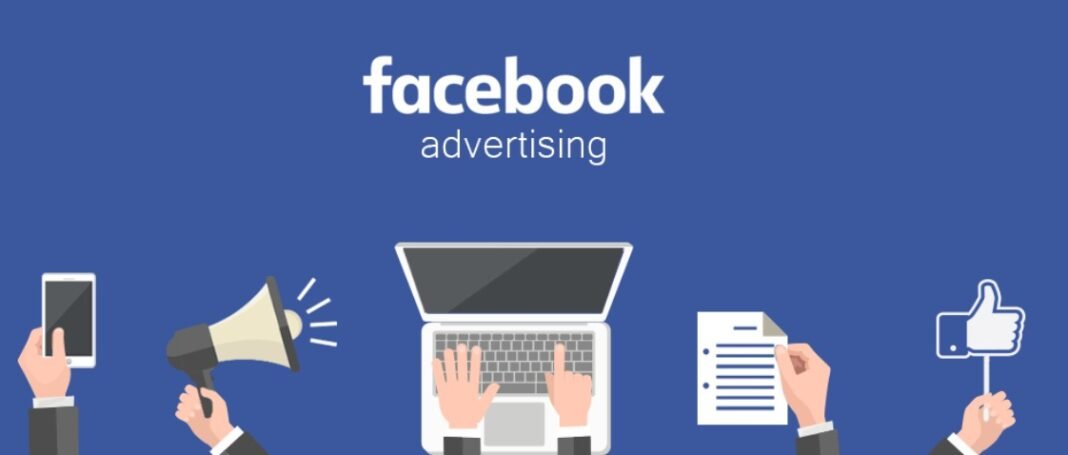With its expansive user base, Facebook has become a go-to platform for businesses, including those in the B2B sector, to display their products and services. The efficiency of Facebook advertisements, especially when it comes to driving conversions, improving brand visibility, and reaching a highly focused demographic, has been debated. This article, focusing on “Facebook ads for B2B,” tries to throw light on real facts that demonstrate the effectiveness of Facebook advertising for businesses targeting other businesses.
Table of Contents
- 1 The Ascension of Facebook Advertising
- 2 Knowing Facebook’s Algorithm
- 3 Choosing the Appropriate Audience
- 4 Increasing Conversion Probability
- 5 Effective Ad Formats
- 6 Key Metrics for Measuring Success
- 7 Case Study: Small Business Success
- 8 Evaluating the ROI of Facebook Ads
- 9 The Influence of Retargeting
- 10 Ad Fatigue: A Real Issue
- 11 Adaptation in a Changing Environment
- 12 Conclusion
- 13 FAQs
The Ascension of Facebook Advertising
Facebook advertising has evolved into a sophisticated structure over the years.Businesses can create highly tailored advertisements that target customers based on demographics, hobbies, and behavior. In the advertising sector, this level of targeting is unparalleled.
Knowing Facebook’s Algorithm
To properly capitalize on the power of Facebook ads, you must first grasp the algorithm that regulates what people view. Because Facebook’s algorithm favors material that people are likely to engage with, advertisers must generate attractive and relevant ads.
Choosing the Appropriate Audience
The ability to target a specific audience is one of Facebook advertisements’ most significant benefits. Advertisers can focus on specific audiences by using characteristics like age, location, interests, and other details.
However, you can utilize Facebook’s capacity to produce a specific audience depending on a number of factors:
Demographics: By focusing on a customer’s age, gender, level of education, and other traits, you can target them using demographics. If you launch a marketing campaign for senior yoga courses, for instance, you can only focus on people over the age of 60.
Location: Geographical targeting enables you to reach users in specific cities, regions, or even within a set radius of your company. This is extremely beneficial to small companies seeking foot traffic.
Hobbies and interests: This is where the true magic happens. Users can be targeted based on their interests, hobbies, and even the pages they have liked. This includes reaching out to users who have demonstrated an interest in yoga, Pilates, healthy living, or related themes.
Behavior: Facebook collects data on user behavior, such as online buying patterns and device usage. Based on their digital behavior, this data can help you target users who are more likely to convert.
Custom Audiences: You can upload your client list to Facebook and target your adverts to these persons specifically. This is ideal for maintaining current consumers or re-engaging with previous ones.
Increasing Conversion Probability
Now consider how this level of audience targeting precision can increase conversion rates:
Relevance: By only displaying your ads to users who are most likely to be interested in it, you may make it more relevant to the user. Advertisements that are relevant to users’ interests are more likely to elicit a response.
Cost Efficiency: Cost effectiveness is achieved by targeting the proper audience. You are not paying to have your ad shown to people who are unlikely to convert. This effective use of your advertising money can considerably boost your return on investment (ROI).
Higher CTR: When your ad resonates with your target demographic, it is more likely to produce clicks. A higher CTR not only increases traffic but also improves the quality score of your ad, thereby lowering your advertising expenditures.
Ad Performance Improvement: Facebook’s algorithms reward ads that perform well. When your ad has favorable interactions (likes, shares, and comments), it is more likely to be seen by a larger audience, hence multiplying its impact.
Building company Loyalty: Precisely targeted ads can assist you in establishing a community of engaged people that share a love for your company. Long-term brand loyalty and advocacy can result from this.
Effective Ad Formats
Facebook’s ad styles range from picture and video advertisements to carousel and slideshow ads. Choosing the correct format for your campaign can make or break its success.
Key Metrics for Measuring Success
It’s critical to track important metrics like click-through rate (CTR), conversion rate, and return on ad spend (ROAS) to determine the efficacy of Facebook ads. These metrics provide useful information about campaign performance.
Case Study: Small Business Success
Consider the following real-world example. Jane’s Boutique, a tiny clothes company, witnessed a 40% spike in sales after running Facebook ads for a month. The ads targeted local fashion enthusiasts, demonstrating that even tiny firms may benefit from Facebook advertising.
Evaluating the ROI of Facebook Ads
Advertisers must consider return on investment (ROI). Businesses can correctly evaluate their ROI thanks to Facebook’s powerful analytics capabilities. Many businesses discover that the ROI from Facebook ads outperforms that of other advertising channels.
Analytics Tools on Facebook
Let’s look at why Facebook’s analytics capabilities make it easier to calculate ROI and why many firms prefer Facebook ads over other advertising channels:
Conversion Tracking: The Facebook pixel helps you to properly track conversions. You may connect specific activities to your ads, such as a purchase, lead form submission, or app download, delivering exact ROI data.
Attribution Models: Facebook has several attribution models available, including last-click, first-click, and data-driven attribution. These models assist you in determining which touchpoints in the customer journey have the greatest impact on conversions.
Metrics for Cost-Per-Conversion: Facebook gives detailed information on the cost per conversion, allowing you to assess the effectiveness of your ad expenditure.
Customizable Reporting: Advertisers can construct customized reports that focus on the data most relevant to their aims, making it easier to measure ROI depending on their unique objectives.
Other Channels vs. Facebook Ads
Why do many organizations believe that Facebook ads regularly outperform other advertising channels in terms of ROI?
Precise Targeting: As previously noted, Facebook’s targeting features allow you to present advertising to an audience that is extremely likely to convert. This precision reduces ad spend waste.
A/B Testing: The Facebook platform makes it simple to do A/B testing in which you may test multiple ad creatives, headlines, and targeting settings. This optimization technique has the potential to greatly increase ROI.
Dynamic Ads: Facebook’s dynamic advertising shows the most relevant products to people who have demonstrated interest, boosting the likelihood of conversion.
Mobile-Friendly: As the use of mobile devices grows, Facebook advertisements are designed to perform well on mobile, grabbing a large audience and enhancing ROI possibilities.
Remarketing: The retargeting capabilities of Facebook (discussed above) assist re-engage consumers who have previously interacted with your business, boosting the odds of conversion and enhancing ROI.
The Influence of Retargeting
Facebook’s remarketing capabilities are revolutionary. You may drastically enhance conversion rates by showing advertising to users who have previously connected with your business.
Global Brands and Facebook Advertising
Facebook ads benefit more than just small companies. Coca-Cola and Nike have leveraged Facebook’s massive reach to interact with their audiences and promote engagement.
The Social Proof Influence
Facebook marketing is only successful when it receives social proof through likes, comments, and shares. Users are more likely to trust and relate to content that has received other people’s approval.
Ad Transparency and Challenges
While Facebook advertising has numerous benefits, they are not without drawbacks. Increased scrutiny has resulted from concerns about ad transparency and data privacy.
Ad Transparency:
Algorithmic Complexity: What material users view in their feeds is determined by Facebook’s algorithm. However, the complexity of the system and the lack of comprehensive transparency into how it works have sparked concerns regarding content visibility. Advertisers frequently struggle to forecast the reach and engagement of their advertisements.
Ad Placement: Advertisers may not have perfect control over where their advertisements show on Facebook and its partner networks. This lack of control is concerning since advertising may appear on sites or adjacent to material that is not consistent with the brand’s values or mission.
Competitive Bidding: A competitive bidding concept underpins Facebook’s ad auction system. While this paradigm promotes fair competition, it might lead to changing ad costs and erratic ad placement.
Ad Review procedure: Facebook has an ad review procedure in place to ensure that company policies are followed. However, the subjectivity of the process has raised issues about consistency and fairness in ad approvals.
Ad Fatigue: A Real Issue
Ad fatigue becomes a worry as users are exposed to more advertisements. Advertisers must constantly innovate in order to keep their audiences engaged.
Adaptation in a Changing Environment
The digital marketing landscape is always evolving. To keep a competitive edge, advertisers must stay up to date on Facebook’s latest features and algorithms.
Conclusion
To summarize, Facebook advertisements, guided by the expertise of Facebook advertising experts, are a valuable weapon in the armory of digital marketers. A wealth of evidence and real-world success stories back up their effectiveness. Whether you’re a tiny business wanting to grow sales or a big brand looking to increase brand awareness, Facebook advertisements can help.
The effectiveness of Facebook ads extends beyond the binary metrics of clicks and conversions to forming real connections, building brand loyalty, and producing tangible, long-term results. It’s about harnessing the power of social proof, creating enthralling ad creatives, and staying ahead in a fast-paced digital landscape.
FAQs
1. Are Facebook ads appropriate for all types of businesses?
Facebook advertising can be effective for a variety of businesses, but success is dependent on ad quality and targeting.
2. How can I assess the effectiveness of my Facebook ad campaign?
Metrics like CTR, conversion rate, and ROI can be used to assess success.
3. Is Facebook advertising a good investment for small businesses?
Because of its fine targeting capabilities, Facebook advertising can be cost-effective for small businesses.
4. What exactly is ad retargeting, and how does it function on Facebook?
Ad retargeting displays advertisements to consumers who have already interacted with your business, improving the likelihood of conversion.
5. How frequently should I alter the creatives of my Facebook ads to minimize ad fatigue?
Ad creatives should be renewed on a regular basis to avoid ad fatigue, but the frequency is determined by your audience’s response.




